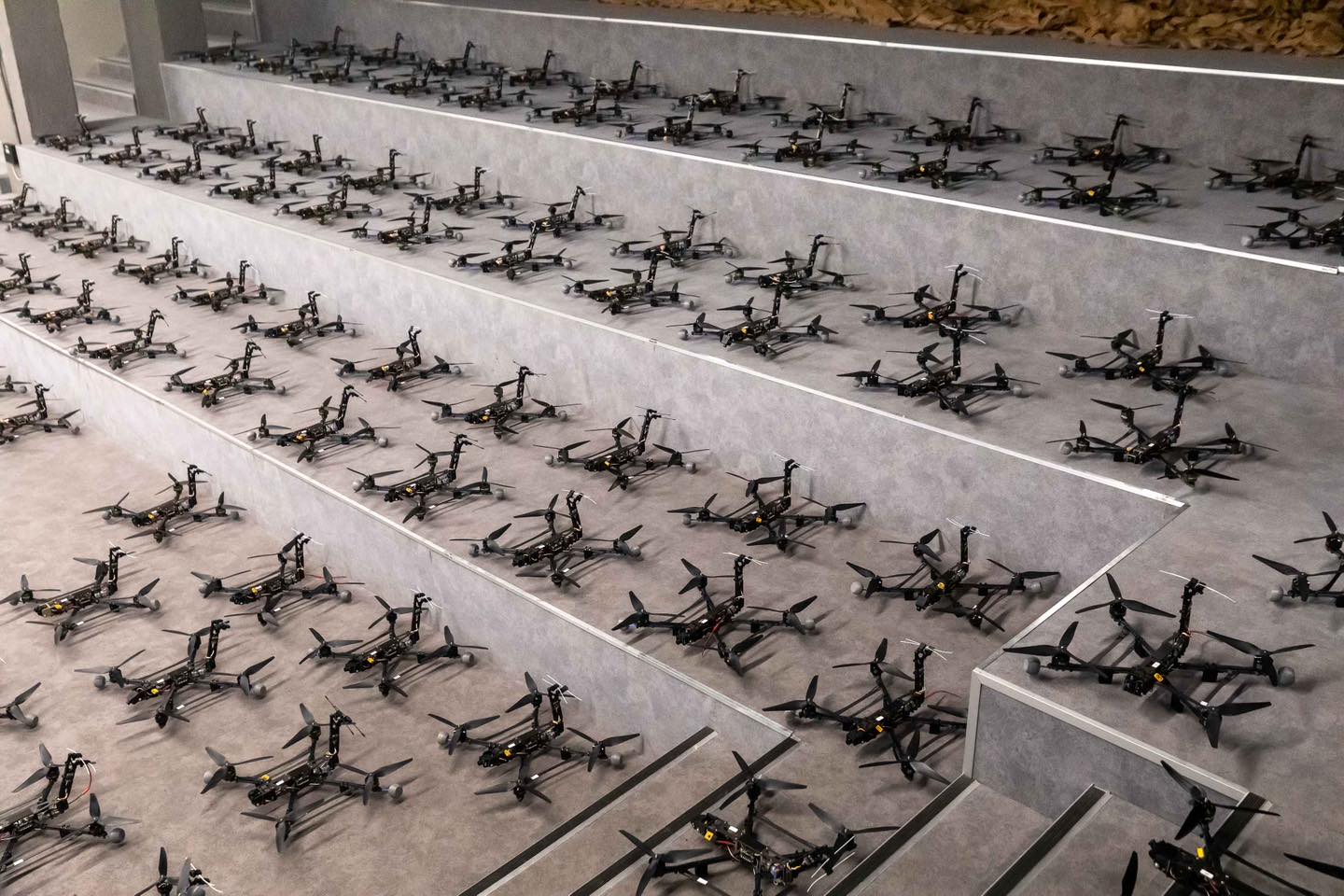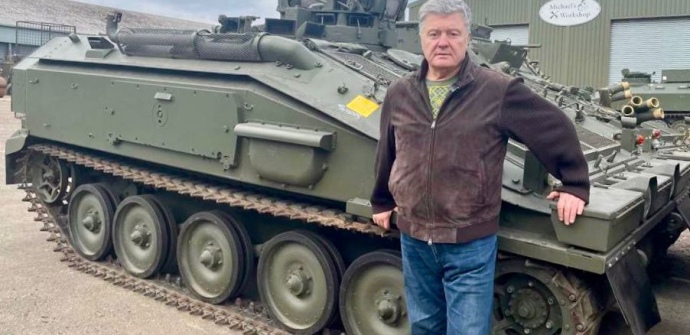Ukrainian President Volodymyr Zelenskyy has signed a decree enacting sanctions against a number of prominent Ukrainian figures, including opposition leader and former Ukrainian President Petro Poroshenko.
On 12 February, Ukraine’s National Security and Defense Council (NSDC) approved sanctions targeting Poroshenko, now a lawmaker from the European Solidarity party. The move has sparked a wave of outrage among volunteers, journalists, and politicians, who say that the decision causes division during wartime and could turn into a dictatorship of Zelenskyy’s ruling party, which currently holds a parliamentary majority.
According to three NSDC representatives who spoke with Ukrainska Pravda, the restrictions also apply to oligarch Ihor Kolomoisky, billionaire Kostyantyn Zhevago, former PrivatBank co-owner Hennadii Boholiubov, and ex-lawmaker Viktor Medvedchuk, who has been accused of treason.
The sanctions against Poroshenko and his party include asset freezes, bans on economic activity, and the revocation of state awards, significantly restricting his political and financial activities, BBC reports.
In response, the European Solidarity faction blocked parliamentary proceedings on 13 February, calling the measures politically motivated persecution.
Under the presidential decree, those sanctioned face 17 restrictions, including bans on public and defense procurements, technology transfers, and land ownership.
On the day the sanctions were announced, Poroshenko delivered 500 FPV drones to Ukrainian air defenders of the 1129th Air Defense Missile Regiment, which protects Ukrainian airspace from Kharkiv to Zaporizhzhia oblasts.

Poroshenko has condemned the sanctions, calling them an "unconstitutional, politically motivated decision."
"Ukrainian authorities have imposed absolutely illegal restrictions against me, Petro Poroshenko, as the leader of the opposition and the fifth president.
There are many accomplices in this crime: the entire Zelenskyy team, the Cabinet of Ministers, which was pressured into this absurd submission, and members of his NSDC," he says.
Poroshenko also warned that the sanctions could hinder his foundation’s military aid efforts.
"What upsets me the most? If the sanctions significantly complicate my foundation’s aid to the Ukrainian army, a cause our team has dedicated itself to throughout all three years of the great war.
I don't want to talk about money today. We have already delivered 50,000 drones but the government has other priorities," he says.
A number of Ukrainian public figures have called the NSDC’s decision “shortsighted” and “inept,” pointing to the persecution of political opponents ahead of potential Ukraine's elections.
For example, journalist Tetyana Troshchynska has drawn parallels with former pro-Russian president Viktor Yanukovych, who was ousted during the 2014 Euromaidan revolution and also repressed the opposition. She has also hinted that such a decision could indicate that the government is preparing for potential elections after a ceasefire or end of the war—something Moscow has previously insisted on and the US has suggested to Ukraine.
Currently, under martial law, elections are not permitted, as 18% of Ukraine remains under Russian occupation, and polling stations could become targets for Russian strikes.
"What it means is that with these actions, the authorities are clearly saying that elections (what elections, by the way?) and fighting political opponents are more important to them than fighting the enemy. It’s hard not to draw all the parallels with Yanukovych, but history never teaches anything to those who are incapable of learning," she writes.
Kyiv City Council member Leonid Yemets has also suggested that the government is preparing for potential elections, as per Priamii.
"For five years, they opened dozens of criminal cases and failed to find evidence for any of them! So they took the easy route—imposed sanctions. Without a court decision, in violation of the law—just because they have the power and an incredible desire to do it. The elections are already here, even though they are officially banned during wartime. But clearly, not for everyone," he says.
Military and civil activist Yurii Hudimenko, a member of the Public Anti-Corruption Council, has noted that there are politicians in the Ukrainian parliament who should be sanctioned, including Yurii Boiko, the former head of the now-banned Opposition Platform, for its pro-Russian stance, and not Poroshenko.
"At a time when we need unity not only against our enemies but also with our allies, imposing sanctions not on Boiko, not on Portnov, but on Poroshenko—it’s madness. Stop!" he says.
Meanwhile, Oleksandra Matviichuk, a Ukrainian human rights lawyer and Nobel Prize winner, has emphasized the significance of unity during wartime rather than the persecution of opposition figures.
"The worst thing to do in our situation is to start an internal political confrontation. At a time when it is crucial to present a united national front on the international stage. I’m not appealing to reason, but at the very least, there should be some instinct for self-preservation," she stresses.
Kyiv Mayor Vitali Klitschko has also responded to the NSDC’s decision and events in the Verkhovna Rada, warning that new sanctions against Poroshenko and persecution of opposition leaders could threaten Ukraine’s democracy.
Read more:
- Ukraine’s wartime unity at risk as ruling party seeks to ban opposition leader Poroshenko from parliament
- Ukraine Parliament condemns Russian Empire’s Circassian genocide that killed and exiled 90% of population
- EU Parliament votes to combat Russian historical myths used to justify war against Ukraine
- Talks with Trump team may begin in early February, says Ukrainian parliamentary leader

